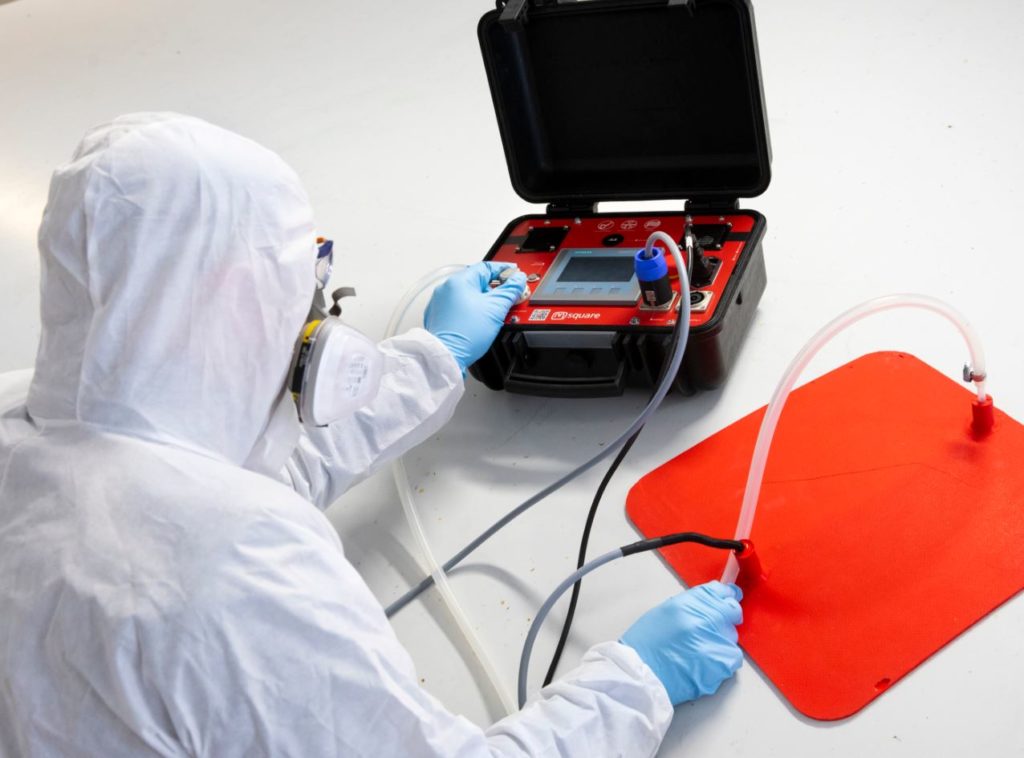Innovative heating technology for processing of composites
Technology
The Flexln Heat® heating technology that has been developed at the Institute of Structures and Design in Stuttgart uses inductively heated metal sheets or metal foils to apply heat. The essential part of this new technology is a novel coil design that generates a specially shaped electromagnetic field. The basis of the induction coil is copper wire, which is formed into a special design. Due to the flexibility of the system, the induction coil can also be used to heat curved structures or complex tool surfaces. The metal sheet can be cut to exactly match the shape of the area to be heated. Temperature-sensitive areas can thus be avoided.
The Flexln Heat® technology can be integrated into existing systems and tools, or used to enable completely new heating applications. Particularly for flexible heating blankets, for example integrated in silicone, for joining processes or tool heating, the flexible induction coil is very suitable.
Advantages
The flexible induction coils of the Flexln Heat® technology are very versatile and have different advantages depending on the application:
Repair:
- complex surfaces of tools or components can be processed thanks to the great flexibility of the heating system.
- due to the geometry of the metal sheet, the area to be heated can be defined very precisely and areas sensitive to high temperatures can be avoided.
- high rates of heating and high maximum temperatures can be achieved for the repair of high-performance fibre-reinforced thermoplastic structures.
Heated tooling:
- with inductively heated metal plates or curved tool surfaces, energy savings of up to 60 percent can be achieved in the manufacturing of composite components.
- with short heating and cooling times – compared to other state-of-the-art technologies – the cycle rate can be increased significantly – by 50 percent.
German Aerospace Center (DLR)
Institute of Structures and Design
Markus Kaden · E-Mail: markus.kaden@dlr.de · DLR.de
